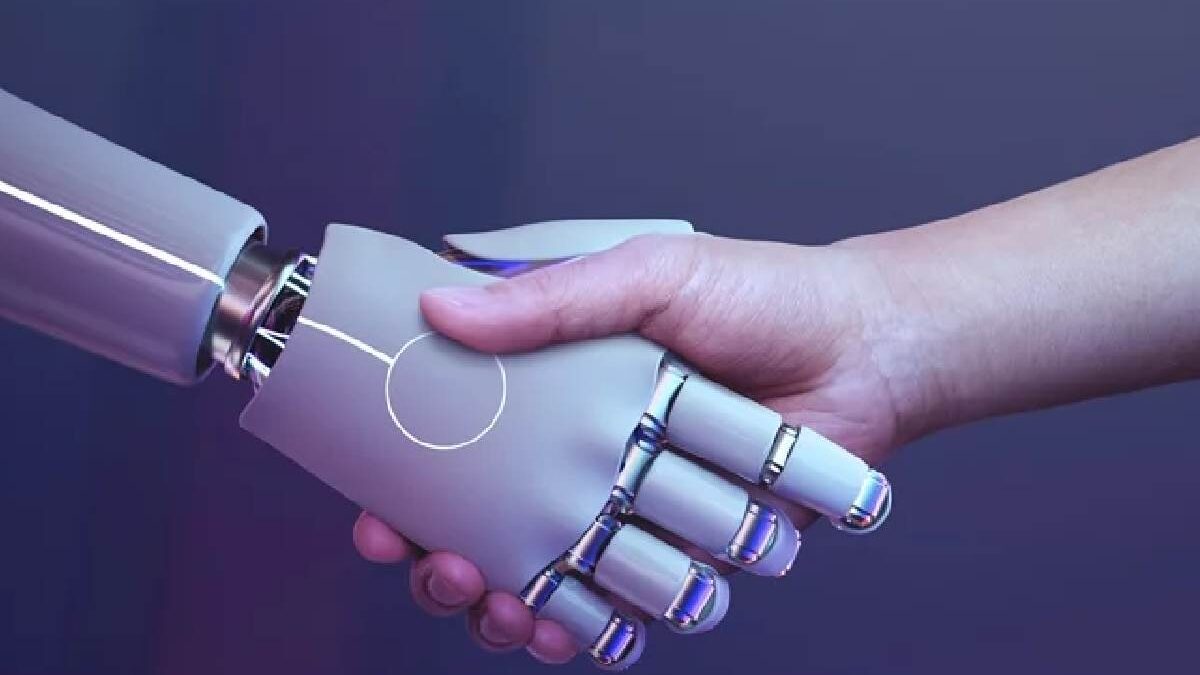Table of Contents
Introduction
The concept of artificial intelligence is interesting, and innovation in rapidly growing areas is increasing. However, artificial intelligence’s optimistic and pessimistic potential has stimulated experts and amateurs alike for a long time. And there are many positives for artificial intelligence that is not frequently highlighted.
Digital technology has evolved rapidly in the past few decades. And it can be said that most of us today have the same technological power in our pocket as the technology in our homes in the 1990s.
We have also made significant discoveries in machine learning and deep learning, allowing the machine to process and analyze information. And sometimes learn in complex ways.
Thanks to these advances in ai technologies, the machine can now learn to perform complex tasks such as facial recognition.
1. Artificial Intelligence Continues To Improve Automation
Robots carrying ai software today can serve industrial environments perform various tasks inside and outside the plant without permanent human intervention. Artificial intelligence is a candidate for a technology that changes many practical applications and functions in many industries.
Machine learning, deep learning and others are already being used today to reduce the human workload in manufacturing. Canning, customer services, human resources, etc.
It has significantly reduced operational and staff costs, raising corporate automation efficiency to a higher level than before. As evidenced by a Japanese equipment-building machine called Okuma. In addition, It has demonstrated many innovations that illustrate the future of intelligent manufacturing in 2018, including factory robots of various sizes. And new and sophisticated intelligent tools. This example summed up the bright future of artificial intelligence in industrial environments.
2. Human Artificial Intelligence Is Rid Of Monotonous And Boring Work
. Artificial intelligence reduces the workload we find in many tasks, such as repetitive and tedious ones, increasing human error due to lack of focus. Such studies are bad for humans but excellent for using computer automation for their work. And here comes artificial intelligence to save us.
Machines complete processing and classification work such as data entry. Freeing people up and allowing them to focus on creative thinking about their work and lives.
Some banks have implemented programs in the banking sector to free accountants from duplicate businesses and focus on deep digital analysis.
3. Developing Weather Forecasts
weather forecasting is a complex process. Requiring long calculations and deep learning networks that help software process more data than humans can.
Artificial intelligence techniques have been used to predict the weather in recent years. This area has successfully encouraged collaboration between weather scientists. And data scientists to fill the gap and integrate experiences.
There are countless ai applications aimed at accurate weather forecasting. Such as IBM’s use of its computer devices to improve its weather forecasts since the mid-1990s.
The Next Generation Of Disaster Response
California experienced significant damage in 2017 from forest fires, with more than 1 million acres of land reported in wildfires that killed nearly 46 people and left hundreds of homes missing. In addition, large-scale wildfires in Australia in 2019-20 caused severe damage and loss of life.
Because of the growing threats of violent weather events. Many government authorities. And organizations have begun to use artificial intelligence to help combat these disasters using algorithms and satellite data.
Artificial intelligence has proven effective in achieving intelligent disaster responses. And providing real-time data on disasters. And weather events.
It helps save valuable time and achieve disaster response more targeted and efficient. In addition, further development warnings may be provided well in advance to evacuate people from the danger zone safely.
Protecting Human Lives
It is a common perception that artificial intelligence will one day cause the end of humanity. As robots will control us and destroy us all. Still, we usually ignore that integrating artificial intelligence into our daily lives may free us from many responsibilities that we do not want or need.
A compelling example is the future of war and weapons, as artificial intelligence shows great promises of its potential applications in battle. In this book, an army of no one. Paul char states that troops are expected to work with intelligent machines in the future side by side. This means that artificial intelligence and robots will play more dangerous roles in wars. Saving humans from being on the front lines of combat.
There are certainly some severe ethical issues that need to be addressed before giving artificial intelligence the ability to use absolute force.
But this can help save human lives in other areas such as disaster rescues. One day, we may see artificial intelligence help firefighters or rescuers locate and rescue victims in disaster time.
6. Artificial Intelligence Does Not Need Comfort
Artificial intelligence never sleeps. And instead of being a negative factor, it’s probably beneficial to all of us. Humans need to eat, sleep and rest while ai machines don’t need to. And while securing the power supply. They can theoretically work forever. Humans work between 4 and 10 hours a day. While this never needs rest to work 24 hours. Seven days a week at the height of its performance.
It will reduce errors, maintain essential services. And help companies and organizations provide the services their users depend on. Moreover, such helplines and others may lead to significant discoveries in research. And educational institutions that may have wide-ranging benefits for all of us.
7. Artificial Intelligence May Create New Jobs!
Although some concerns about the possibility of eliminating some types of jobs are genuine, ai may also open up entirely new business areas. Moreover, applying ai in business will force the labour market to evolve.
From various maintenance and support roles to entirely new functions that we have not yet imagined, the widespread adoption of artificial intelligence may have a brighter future for all of us. We can’t go back to pre-technology. We have to learn how to use it wisely for our good.

